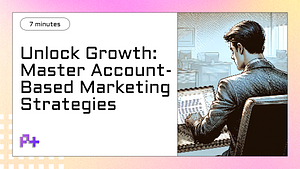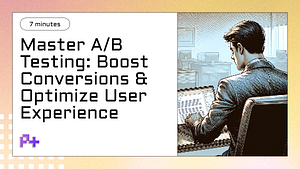1. What is AI Marketing?
AI marketing refers to the integration of artificial intelligence technologies into marketing strategies to enhance efficiency, personalization, and data-driven decision-making. At its core, AI marketing utilizes algorithms and machine learning to analyze consumer behavior, predict trends, and automate various processes. This allows businesses to create more targeted campaigns, improve customer engagement, and optimize their marketing efforts in real-time. By leveraging vast amounts of data, AI can help marketers understand what resonates with their audience, ultimately leading to better conversion rates and increased customer satisfaction.
One of the most significant advantages of AI in marketing is its ability to personalize experiences for consumers. Through AI-powered tools, brands can analyze user data and deliver tailored content, recommendations, and advertisements that align with individual preferences and behaviors. For example, e-commerce platforms frequently use AI algorithms to suggest products based on past purchases or browsing history. This level of personalization not only enhances user experience but also fosters loyalty, as customers feel understood and valued by brands that cater to their specific needs.
Moreover, AI marketing streamlines various marketing operations, allowing teams to focus on creative strategies rather than mundane tasks. Automation tools powered by AI can handle email marketing campaigns, social media posting, and even customer service inquiries through chatbots. These advancements not only save time but also ensure that marketing campaigns run smoothly and efficiently. As a result, businesses can allocate resources more effectively and adapt quickly to market changes, making AI an indispensable tool in the modern marketing landscape. Overall, the incorporation of AI in marketing is revolutionizing how brands connect with their audiences, driving innovation and growth across industries.
2. Benefits of Using AI in Marketing
The integration of AI in marketing has transformed the landscape of how businesses engage with consumers, offering numerous advantages that enhance efficiency and effectiveness. One of the primary benefits is the ability to analyze vast amounts of data quickly and accurately. AI algorithms can sift through customer behavior data, social media interactions, and purchasing patterns to derive insights that human analysts might miss. This data-driven approach enables marketers to tailor their strategies to target specific demographics, resulting in more personalized and relevant marketing campaigns. By leveraging AI, companies can optimize their marketing efforts, leading to improved customer satisfaction and higher conversion rates.
Another significant benefit of using AI in marketing is automation. Tasks such as email marketing, social media posting, and even customer service can be automated with AI tools, freeing up valuable time for marketing teams to focus on creative and strategic initiatives. For instance, AI-powered chatbots can handle customer inquiries 24/7, providing instant responses and enhancing the customer experience. This not only improves efficiency but also ensures that potential leads are nurtured in real time, which can significantly boost engagement and sales. Additionally, automation through AI reduces the risk of human error, leading to more consistent and reliable marketing processes.
Lastly, AI in marketing facilitates predictive analytics, which helps businesses anticipate future trends and consumer behaviors. By utilizing machine learning algorithms, marketers can forecast outcomes based on historical data, allowing them to make informed decisions about their marketing strategies. For example, AI can predict which products are likely to be popular in upcoming seasons, enabling businesses to adjust their inventory and marketing campaigns accordingly. This proactive approach not only enhances operational efficiency but also positions brands to stay ahead of the competition. In summary, the benefits of using AI in marketing—ranging from advanced data analysis and automation to predictive analytics—are essential for businesses looking to thrive in an increasingly digital marketplace.
3. How AI is Used in Marketing: Key Use Cases
Artificial Intelligence (AI) is revolutionizing the marketing landscape by enabling businesses to harness data-driven insights for more effective strategies. One of the most prominent use cases is predictive analytics, where AI algorithms analyze historical data to forecast future consumer behavior. By identifying patterns and trends, marketers can tailor campaigns to target specific demographics, optimizing their ad spend and improving conversion rates. For example, AI can help businesses understand which products are likely to be popular in the coming months, allowing for timely inventory management and promotional strategies.
Another critical application of AI in marketing is in customer segmentation and personalization. AI tools can process vast amounts of data to segment audiences based on their preferences, behavior, and demographics. This segmentation allows marketers to create personalized content and offers, enhancing customer engagement and satisfaction. For instance, e-commerce platforms utilize AI to recommend products based on previous purchases and browsing history, leading to an increase in sales and customer loyalty. Personalized email campaigns powered by AI also yield higher open and click-through rates, showcasing the effectiveness of tailored marketing approaches.
Lastly, chatbots and virtual assistants have become essential components of customer service in marketing. These AI-driven tools provide immediate responses to customer inquiries, enhancing user experience and freeing up human resources for more complex tasks. Chatbots can handle a wide range of functions, from answering frequently asked questions to guiding users through the purchase process. By integrating AI chatbots into marketing strategies, businesses can improve their responsiveness and maintain continuous engagement with customers, ultimately leading to higher satisfaction and retention rates. As AI technology continues to evolve, its role in marketing will likely expand, offering even more innovative solutions for businesses.
4. Best Practices for Incorporating AI into Your Marketing Strategy
Incorporating AI into your marketing strategy can significantly enhance your efforts, but it’s essential to do so effectively. One of the best practices is to start small and scale your AI initiatives gradually. Begin by identifying specific areas within your marketing strategy where AI can make the most impact, such as customer segmentation, predictive analytics, or chatbots for customer service. By piloting AI tools in these areas, you can measure their effectiveness, gather data, and refine your approach before integrating more complex AI systems across your broader marketing operations.
Another key practice is to ensure that your team is well-versed in AI technologies and their applications in marketing. This involves investing in training and development to equip your marketing personnel with the skills needed to leverage AI tools effectively. Encourage collaboration between data scientists and marketing teams to foster a data-driven culture. By blending creative marketing strategies with AI insights, your team can create more personalized and targeted campaigns, ultimately leading to improved customer engagement and conversion rates.
Lastly, it’s crucial to continuously monitor and optimize your AI-driven marketing efforts. Utilize analytics to track performance metrics and gather insights on consumer behavior. This real-time data allows you to adjust your strategies quickly, ensuring that your marketing efforts remain relevant and effective. Additionally, staying updated with the latest AI advancements and trends will help you adapt your strategy to leverage new tools and technologies, keeping your marketing efforts ahead of the competition. By following these best practices, you can seamlessly integrate AI into your marketing strategy, enhancing efficiency and driving better results.
5. The Future of AI in Marketing: Trends and Predictions
The future of AI in marketing is poised to be transformative, driven by rapid advancements in technology and an increasing reliance on data-driven decision-making. As businesses continue to embrace artificial intelligence, we can expect to see significant trends emerging in various aspects of marketing. One key trend is the rise of hyper-personalization, where AI algorithms analyze vast amounts of consumer data to tailor marketing messages and product recommendations to individual preferences. This level of personalization not only enhances customer engagement but also improves conversion rates, as consumers are more likely to respond positively to offers that resonate with their specific needs and interests.
Another major development on the horizon is the integration of AI with other emerging technologies, such as augmented reality (AR) and virtual reality (VR). Marketers are beginning to leverage AI to create immersive experiences that allow customers to interact with products in innovative ways. For instance, AI-powered chatbots are being increasingly utilized in conjunction with AR to provide real-time assistance during virtual try-ons or product demonstrations. This synergy between AI and immersive technologies is expected to redefine customer experiences, making them more interactive and memorable, thus driving brand loyalty and customer retention.
Finally, the ethical implications of AI in marketing will likely shape its future trajectory. As consumers become more aware of data privacy issues, companies will need to navigate the fine line between effective marketing and respecting user privacy. This will lead to the development of transparent AI systems that prioritize ethical considerations in data usage and consumer interactions. In the coming years, businesses that successfully balance innovation with ethical responsibility will not only enhance their brand reputation but also gain a competitive edge in the rapidly evolving marketing landscape. As AI continues to evolve, its role in marketing will be crucial in shaping strategies that resonate with consumers while adhering to ethical standards.



